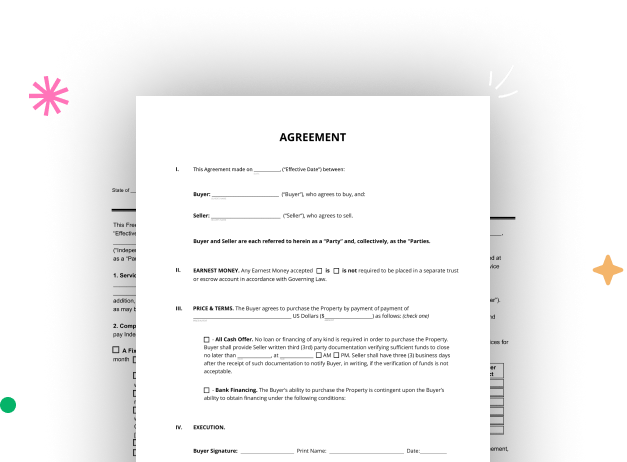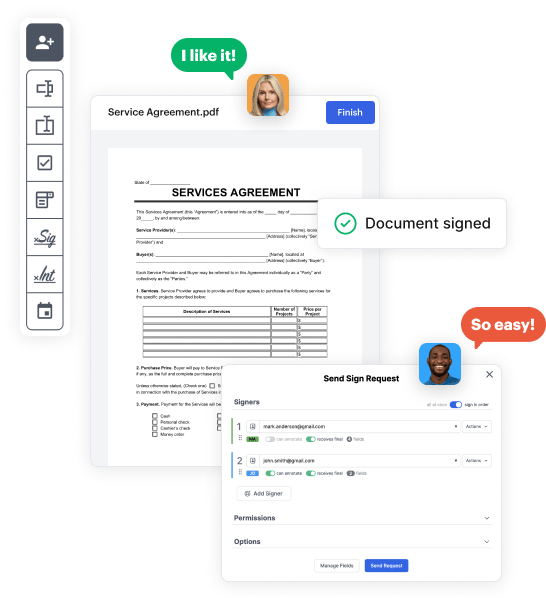

Visit the DocHub website and sign up for the free trial. This gives you access to every feature you’ll require to build your Tennessee Living Trust Form without any upfront cost.
Sign in to your DocHub account and navigate to the dashboard.
Click New Document in your dashboard, and choose Create Blank Document to craft your Tennessee Living Trust Form from scratch.
Add different elements such as text boxes, radio buttons, icons, signatures, etc. Organize these fields to match the layout of your form and assign them to recipients if needed.
Rearrange your form effortlessly by adding, moving, removing, or combining pages with just a few clicks.
Turn your freshly designed form into a template if you need to send multiple copies of the same document multiple times.
Send the form via email, distribute a public link, or even publish it online if you want to collect responses from a broader audience.